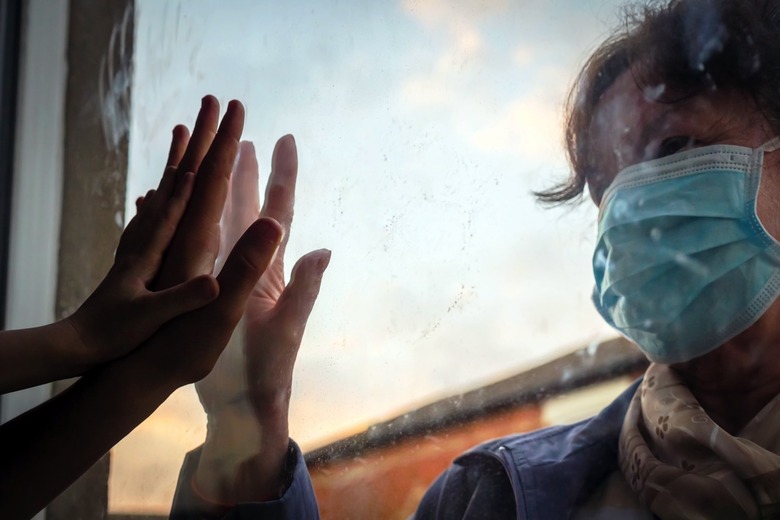FDA Warns That This At-Home Coronavirus Therapy That Could Do More Harm Than Good
- The FDA issued a new consumer update that warns users not to attempt to treat COVID-19 at home using one particular medical device.
- Oxygen concentrators are used at home to treat a variety of respiratory issues that require oxygen therapy.
- COVID-19 complications can include severe respiratory failure that may require oxygen therapy, but it should be administered in a hospital setting.
COVID-19 patients who are asymptomatic or experience mild symptoms will typically recover within two weeks, and most of them will not require hospitalization. They'll need to monitor their symptoms while isolating from their family, and they'll also need to follow their physicians' advice for at-home treatment. Monitoring the oxygen while at home with a pulse oximeter device is a good idea, as the gadget can warn you of the imminent onset of respiratory problems. Once the oxygen saturation drops below 94, medical attention might be required.
Doctors may put patients on oxygen therapy and other treatments that are only available in hospitals. But as the number of daily COVID-19 cases reach record highs, some medical systems will inevitably be overwhelmed. Even if COVID-19 therapies save more lives now than they could back in March and April, some patients might need weeks of hospitalization to recover from COVID-19 complications and get off of oxygen and ventilation machines. But the FDA now warns that COVID-19 patients should not attempt to treat COVID-19 respiratory complications using a medical device at home, as the procedure might do more harm than good.
The agency published a consumer update a few days ago on its website regarding oxygen concentrators and pulse oximeters. The latter is already widely known and utilized at home to track blood oxygen saturation, especially after infection with the novel coronavirus.
Oxygen concentrators are medical devices that some people are starting to discover when looking for ways to manage the illness at home. They're machines that can filter nitrogen from the air in a room and provide higher amounts of oxygen to patients. Many people suffer from chronic illnesses and require oxygen therapy at home. Such devices can help them breathe and are part of their regular lives.
However, people who require oxygen concentrators at home use those devices with a prescription from a treating physician. The FDA now warns that people should not attempt to use the machines at home to treat covid-induced respiratory failure at home on their own:
You should not to use an oxygen concentrator at home unless it has been prescribed by a health care provider. Giving yourself oxygen without talking to a doctor first may do more harm than good. You may end up taking too much or too little oxygen. Deciding to use an oxygen concentrator without a prescription can lead to serious health problems such as oxygen toxicity caused by receiving too much oxygen. It can also lead to a delay in receiving treatment for serious conditions like COVID-19.
Even though oxygen makes up about 21 percent of the air around us, breathing high concentrations of oxygen may damage your lungs. On the other hand, not getting enough oxygen into the blood, a condition called hypoxia, could damage the heart, brain, and other organs.
The agency advises people to check with their health care providers for advice regarding oxygen therapy. It's not just a prescription that's needed to operate an oxygen concentrator correctly. Users should be aware of other risks when operating such a device — from the FDA warning:
- Do not use the concentrator, or any oxygen product, near an open flame or while smoking
- Place the concentrator in an open space to reduce chances of device failure from overheating
- Do not block any vents on the concentrator since it may impact device performance
- Periodically check your device for any alarms to make sure you are getting enough oxygen.
The FDA has also noted that it has not approved or cleared any oxygen concentrators sold online or used without a prescription. The full consumer advisory is available at this link.
